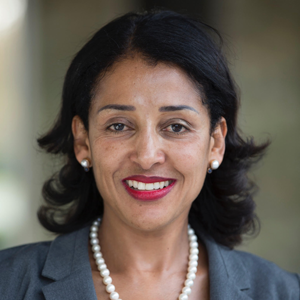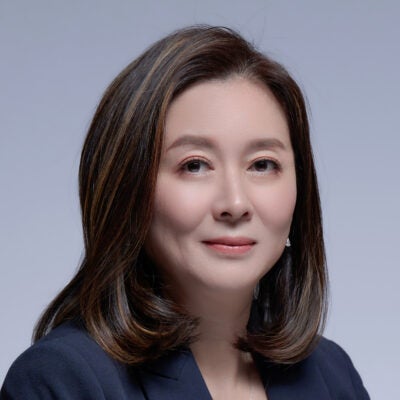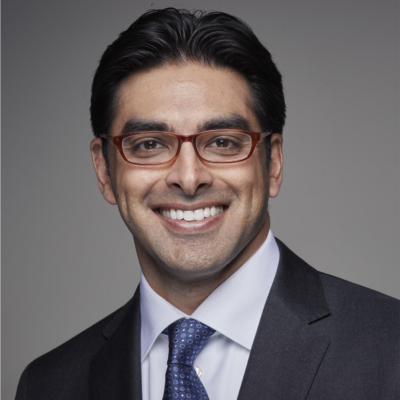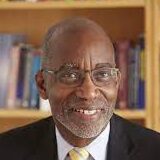
Senait Fisseha Vice President, Global Programs, Susan Thompson Buffett Foundation

Shirley Lin Founder, Center for Asia-Pacific Resilience and Innovation

Anil Soni Chief Executive Officer, World Health Organization Foundation

David Williams Professor of Public Health, Harvard T.H. Chan School of Public Health
Senait Fisseha is a globally-recognized leader in reproductive health and rights and a lifelong gender champion. She currently serves as the vice president of global programs at the Susan Thompson Buffett Foundation, as well as chief advisor to the director general of the World Health Organization.
A reproductive endocrinology specialist, prior to these roles, Fisseha was the chief of the Department of Reproductive Endocrinology and Infertility at the University of Michigan, medical director of the University of Michigan’s Center for Reproductive Medicine, and founding executive director of the Center for International reproductive Health Training (CIRHT). While at Michigan, she also co-directed the Medical School’s Path of Excellence in Global Health and Disparities.
She has received numerous awards, including the Ethiopian Ministry of Health’s highest award, the University of Michigan’s Bicentennial Alumni Award, and the 2019 Distinguished Alumni Award from Southern Illinois University School of Medicine. She was also named as one of the 100 Most Influential Africans for 2018 by New African magazine and one of the 100 Most Influential People in Gender Policy in 2019.
Syaru Shirley Lin is the founder and chair of the Center for Asia-Pacific Resilience and Innovation (CAPRI).
Lin is also a research professor at the Miller Center, a nonresident senior fellow in the Foreign Policy Program at the Brookings Institution, and a teacher at the Chinese University of Hong Kong, Tsinghua University in Beijing, and National Chengchi University in Taipei. She serves as a steering committee member of the Partnership for Health System Sustainability and Resilience under the World Economic Forum.
Prior to her current role, Lin was the youngest woman partner and one of the first Asian partners of Goldman Sachs, where she led the firm’s investment efforts in Asia, managing private equity and venture capital investments in 12 countries and setting up its Tokyo operation. She spearheaded the firm’s investments in technology start-ups in Asia, making it one of the earliest and most successful investors in China. In that capacity, she led the first round of institutional investments in Alibaba and Semiconductor Manufacturing International Corporation. Previous to her work in private equity and venture capital, she specialized in the privatization of state-owned enterprises in China and Singapore.
Anil Soni is a proven innovator in global health who has worked for 20 years in the public, private, and nonprofit sectors dedicated to expanding healthcare access in low and middle-income countries. He currently serves as the chief executive officer for the World Health Organization Foundation. Additionally, he serves on the board of The Marshall Project.
Prior to his role at the World Health Organization Foundation, Soni was head of global infectious diseases for Viatris; executive director at the Global Fund to Fight AIDS, Tuberculosis, and Malaria; founding executive director at the Friends of the Global Fight; chief executive officer at the Clinton Health Access Initiative; senior advisor at the Gates Foundation; and senior advisor at Born Free Africa.
Soni is an alumnus of McKinsey and Harvard College.
David Williams is an internationally recognized social scientist who specializes in studying social influences on health. He currently serves as the Florence Sprague Norman and Laura Smart Norman Professor of Public Health and chair of the Department of Social and Behavioral Sciences at the Harvard T.H. Chan School of Public Health. Additionally, he is a professor of African and African American studies and sociology at Harvard University.
Previously, he served on the faculty of Yale University for six years and at the University of Michigan for 14. He served on the National Committee on Vital and Health Statistics and on nine committees for the National Academy of Medicine, including the committee that prepared the Unequal Treatment report.
He has received numerous honors and awards, including the American Psychological Association’s Distinguished Leadership in Psychology Award, Committee on Socioeconomic Status award, and has been involved in the development of health policy at the national level in the U.S.
Williams holds an MPH from Loma Linda University and a Ph.D. in sociology from the University of Michigan.
